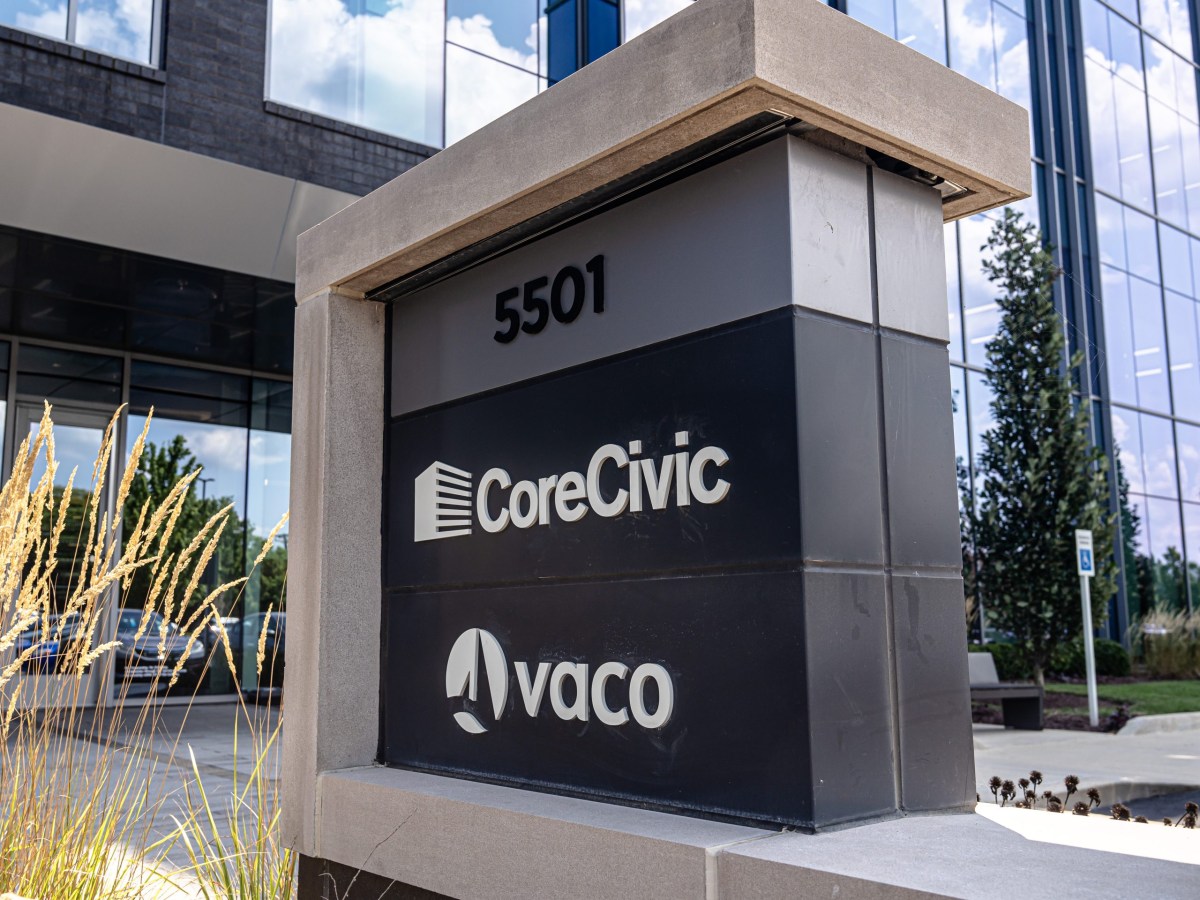Tennessee lawmakers are questioning whether CoreCivic is a “good partner” for the state’s Department of Correction amid a federal investigation and big budget ask.
At a committee meeting Wednesday, some questioned whether the for-profit prison company was benefitting the state, given recent controversy and a growing price tag.
The Department of Correction appeared before the Judiciary and Government Joint Evaluation Committee to provide a progress update after a 2023 audit report raised concerns about staffing and management of the privately operated facilities. Since that time, the company has paid at least $29.5 million in fines, and one of the state’s four CoreCivic-operated prison facilities has come under a federal Department of Justice investigation over physical violence and sexual abuse.
Still, Correction Commissioner Frank Strada told the joint committee that TDOC has made progress on about 90 percent of the corrective actions outlined in the state audit, focusing on improving staffing levels and preventing incidents of violence.
Strada said guard vacancies had gone from 47.5 percent to 26.4 percent since 2021, still exceeding but much more closely resembling the 20.2 percent rate from 2019.
Strada also boasted of a 25 percent decrease in contraband like drugs, weapons and cell phones making it into the prisons, which he attributes to $12 million spent on metal detectors and other screening equipment.
However, some committee members were unsatisfied with the progress report amid the federal investigation and recent settlements paid by CoreCIvic.
“I don’t want to just gloss over why we’re here,” Sen. Charlane Oliver (D-Nashville) said, noting the investigation.
Oliver also questioned why the state allows CoreCivic to run four facilities despite a law that stipulates only one Tennessee prison can be privately operated.
“There is one private prison and we contract directly with CoreCivic to run that facility, the other three facilities, we contract with the county to run those facilities and the county then, in turn, contracts with the private entity of their choice,” Kim Golden, inspector general for TDOC, told Oliver, arguing that case law allows CoreCivic to own and operate the three other facilities.
“CoreCivic has also had to pay out many, many fines, especially over the past year,” Oliver said, noting that the company paid $15 million in August, just a few weeks before the department asked for a $6.8 million increase to pay CoreCivic earlier this month. “So when I look at these numbers, we are asking for more taxpayer dollars to give to CoreCivic when they are just actually giving money — more than double — back to the state.”
Oliver then asked why the state continues to contract with CoreCivic when they have been “not very good at holding up their end of the bargain with their contract.”
Strada quickly refuted the claim, adding that CoreCivic has been “a very good partner for the state.”
“We have a very good relationship with the CoreCivic leadership,” Strada added. “I think we get caught up because they’re a private entity but they do offer, for the state, they help us with population management and when you have 20,000 offenders in our care and custody, that’s a partner that’s needed.”
Strada also said making judgments on the DOJ investigation before it concludes is “a little premature.”
Rep. John Ray Clemmons (D-Nashville) resented the term “good partner,” arguing that the partnership is a cop-out for the state and saying CoreCivic routinely breaches their contract.
“CoreCivic is only a ‘good partner’ to TDOC to the extent that they make your job easier,” Clemmons replied. “They take inmates off your plate and allow [you] to put them somewhere else in a privatized prison and let them handle your problem.”
Clemmons also criticized the company — which reported $1.9 billion in revenue with a net profit of more than $188 million in 2023 — for asking for additional money from the state while facing performance issues. CoreCivic’s stock value increased this month after the reelection of President-elect Donald Trump.
“They’re over there popping champagne corks for the last two weeks because they think their stocks are going up because of a new influx of a prison population,” a visibly upset Clemmons said. “Those are not the type of people we want being charged with the rehabilitation of Tennesseans.”
“This is crazy, that we continue to shovel hundreds of millions of dollars into a private corporation that is failing to do the job they promised you they would do,” he added.
Rep. Janice Bowling (R-Tullahoma) seemed to share at least the fiscal concerns about CoreCivic, questioning the “perceived advantages” when the state chose to privatize prisons in the first place.
Strada, again, said private partnerships were necessary to help with population control but noted he wasn’t in his position when the decision was made decades ago.
“The thing is if you want to bring them all back to the state prison, what you’re going to have is overcrowding, you’re going to have people triple-bunked, you’re going to have an environment that’s not going to be safe for staff and inmates,” Strada said. “There’s a trade-off, and I think they offer us a service that we currently need.”
The committee did not vote on any action related to the prisons since it was just a presentation to follow up on a previous report. The Governor’s Office is working on formulating a 2026 budget but has not indicated whether or by how much the state will increase TDOC’s budget.
A spokesperson for Gov. Bill Lee did not respond to questions about the hearing and budget request on Wednesday, but Lee has previously defended the state’s relationship with CoreCivic, which was a top donor to his 2022 reelection campaign.



